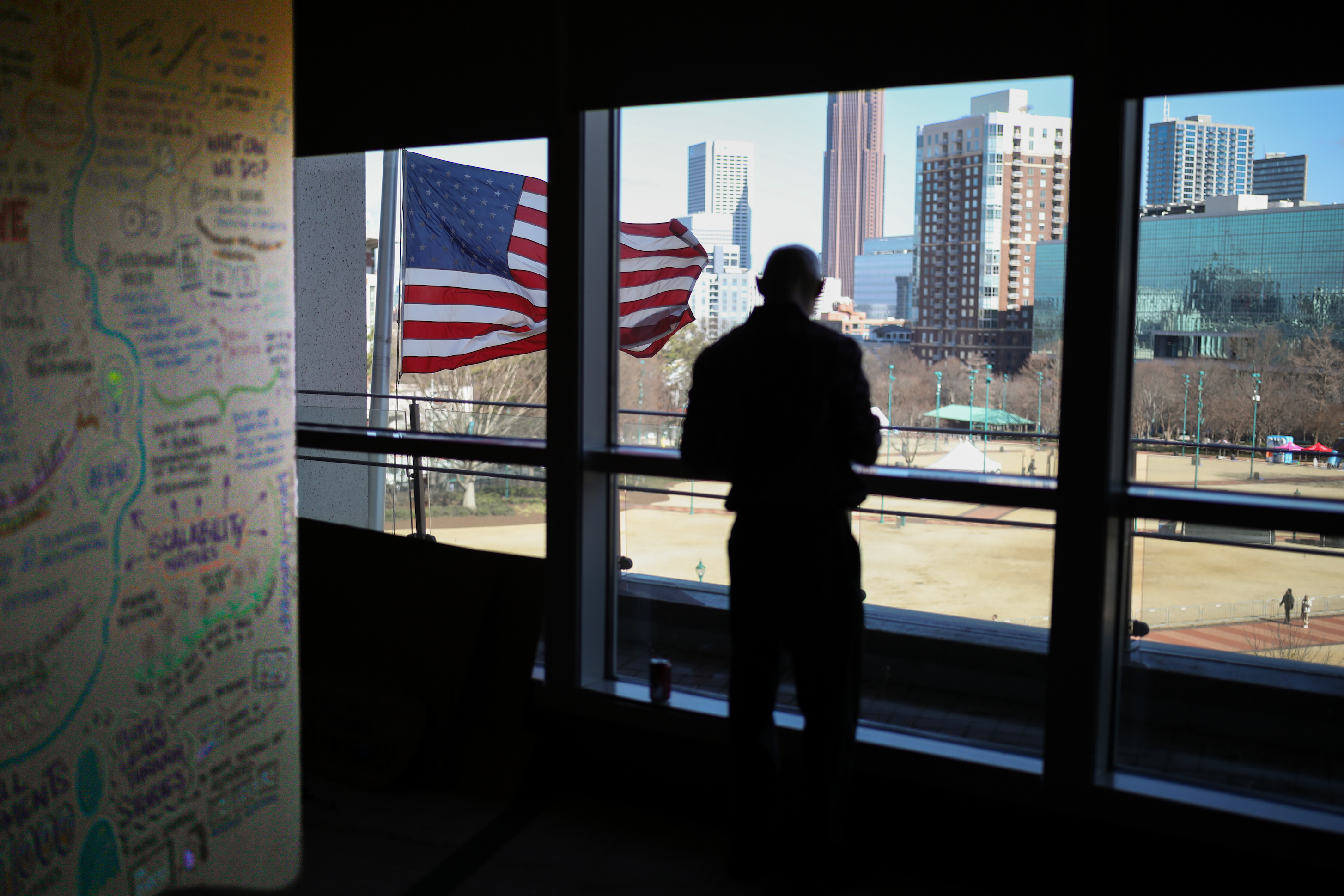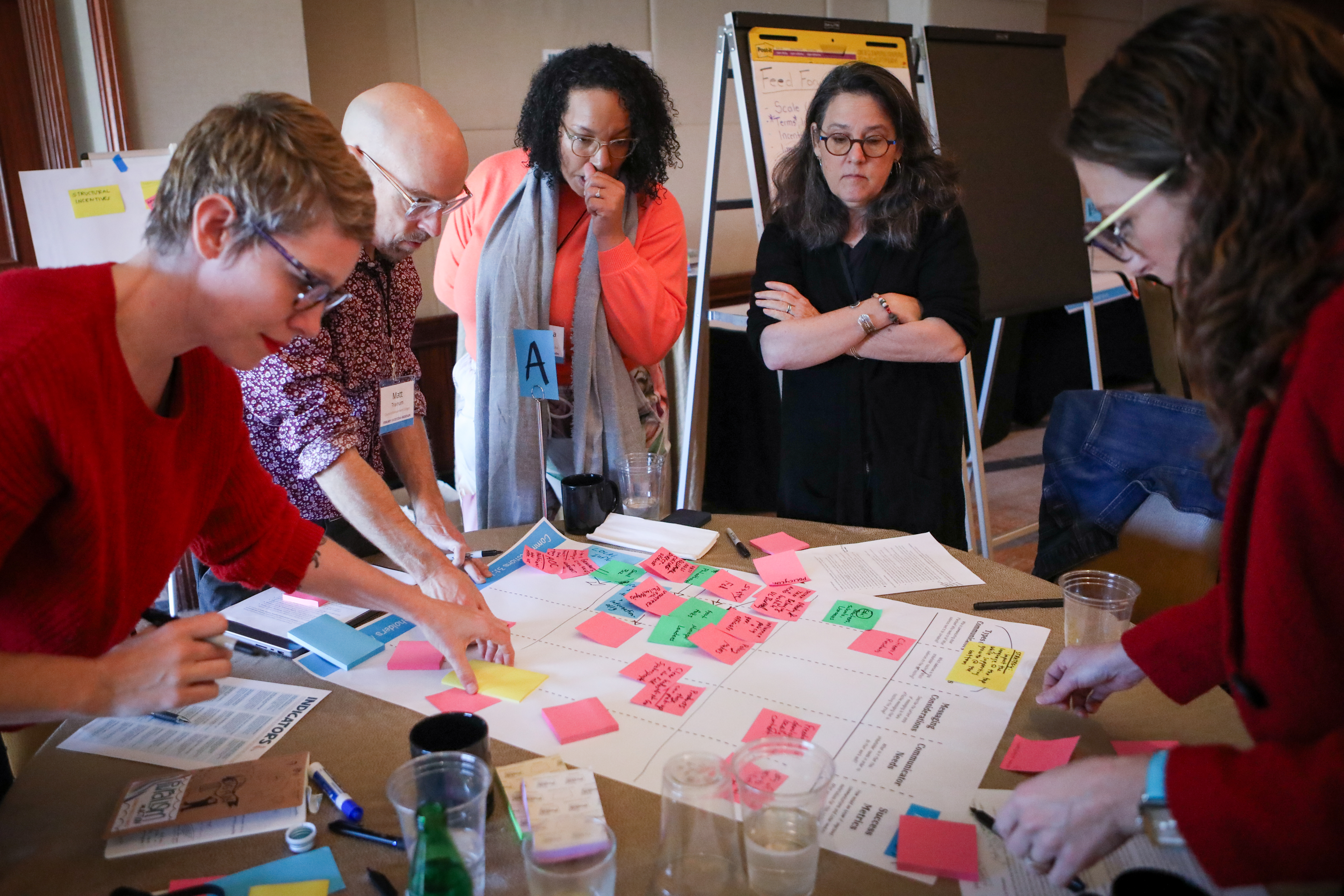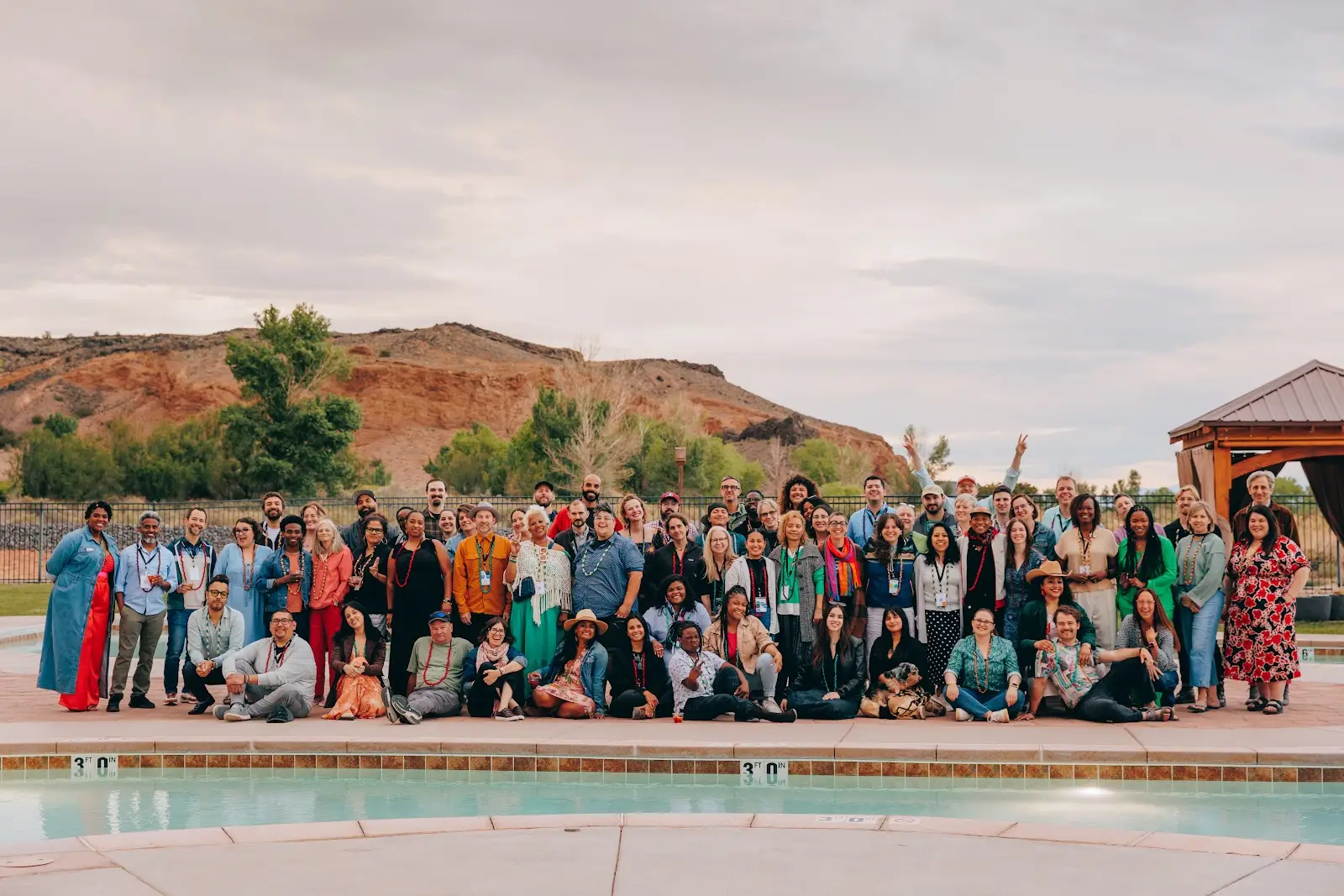Meet the Grantees Building a Stronger Pluralism Ecosystem
November 19, 2025

At New Pluralists, we believe a thriving democracy is not built by a single solution, but by a rich ecosystem of efforts. The work of pluralism includes countless individuals, communities, and institutions who are stitching America back together, helping us build trust, cooperation, and belonging in an era of profound division. This mission is bigger than any one of us, yet, people and communities who care about pluralism remain disconnected. We’re locked in different silos and bubbles, often talking past each other rather than seeing how our work adds up to something greater.
That is why New Pluralists is taking an ecosystem approach: actively weaving these efforts together to strengthen the organizations advancing pluralism and the communities they serve. We are investing in the crucial infrastructure that supports this movement of pluralists — the shared data, tools, skills, and networks that allow many different actors to collaborate, learn what’s working and why, and accelerate their impact.
Today, we are thrilled to announce 12 new grants totaling $1.1 million that will strengthen the core infrastructure of the pluralism ecosystem. Together, these investments will create:
A more aligned measurement ecosystem that helps us understand "what works."
A clearer roadmap for building communications capacity within organizations across the pluralism ecosystem.
A richer understanding of how to apply evidence to solve real-world problems.
These grants are a direct response to the critical gaps identified by practitioners and researchers at two recent convenings (Research to Impact in 2023 and Pluralism in Action in 2025). This slate represents a significant leap forward in the maturity and effectiveness of the pluralism ecosystem by moving a wide number of partners beyond fragmented efforts and toward a more coherent, collaborative, and evidence-informed future.
Grantee Partners
Theme 1: Forging Stronger and Coherent Measurement
Pluralism measurement is maturing, yet lacks coherence. Our learnings surfaced two critical challenges: the proliferation of disconnected tools and the "last mile" problem of getting practitioners to adopt them. This cohort of grantees will collaborate throughout 2026 to address these challenges and work toward the shared goal of aligning their work, ultimately creating a more unified and impactful measurement ecosystem.
Alliance for Peacebuilding - Analyze existing Measurement, Learning & Evaluation (MLE) tools and translate applied research into a new "Standardized Pluralism Framework for the U.S.," this project will create a practical, field and funder-aligned standard to unlock new pathways for systemic impact and funding.
Center for Inclusion and Belonging at the American Immigration Council - Scale the use of its key measurement tool, the Belonging Barometer, and make it easier for leaders and organizations to effectively measure belonging in their communities.
Common Ground USA & More in Common - Adapt the globally tested Peace Impact Framework for an American context to enable organizations to utilize shared indicators of resilience to track the civic capacities that help communities withstand shocks and strengthen democratic practice.
Foundation for Social Connection & More in Common - Combat measurement fragmentation by creating the first phase of a "Multisolver Measurement Toolkit" that will provide practical guidance on selecting complementary measures, enabling practitioners to evaluate the complex, interrelated outcomes of social connection, trust, and belonging.
Listen First Project - Upgrade the Social Cohesion Impact Measurement (SCIM) framework to help practitioners to effectively demonstrate the impact of "bridging" strategies and communicate that impact to stakeholders.
Urban Rural Action - Ground national measurement efforts in local reality by facilitating working groups of implementers, funders, and researchers in three distinct locations to elevate on-the-ground needs and cross-pollinate insights with the national pluralism ecosystem.
Theme 2: Cracking the Code on Communications Capacity
The communications challenges facing the pluralism ecosystem remain poorly understood. These investments represent a strategic learning journey aimed at getting to the root of the problem. By the end of 2026, this cohort will have identified fundamental communication challenges and developed replicable models to build this critical capacity.
The American Immigration Council & Othering and Belonging Institute - Continue the Narrative Community of Practice to move beyond exploration to actively develop participants' leadership skills, foster strategic collaborations, and ensure these powerful narrative strategies are spread effectively through allied networks.
Democracy Notes & More in Common - Prototype a new model of communications support by launching the "Pluralism Communications Lab" that will enable communications practitioners to test new strategies, build skills through expert coaching, and develop shared tools that benefit the entire ecosystem.
The Team Up Project - Team Up (Interfaith America, Catholic Charities, Habitat for Humanity, and the YMCA) will build a dedicated toolkit and peer learning community that strengthens the capacity of their local affiliate organizations to be powerful storytellers for pluralism and amplify the often-unseen narratives of bridgebuilding and cooperation happening in their own communities.
Theme 3: From Research to Actionable Insight
A significant learning from the Request For Proposal (RFP) process is that the most crucial gap to address is not just the researcher-practitioner divide, but the barriers to using evidence. This cohort will test three distinct and complementary leverage points for making evidence more available and useful.
Democracy Communications Collaborative - Translate the latest research on critical democracy topics from across the field into clear narrative strategies, "do/don't" messaging, and trustworthy talking points that organizations can immediately apply.
Democracy Notes & Public Agenda - Engage scholars and practitioners to identify and prioritize the pluralism community's most pressing questions, leveraging Public Agenda’s research accelerator to investigate them and Democracy Notes’ capacity to disseminate the findings.
Re-Imagining Migration (RIM) - Prototype a coordination hub to bridge the gap between migration research and public-facing practice that connects and aligns siloed organizations across the democracy, cultural, and belonging sectors.


